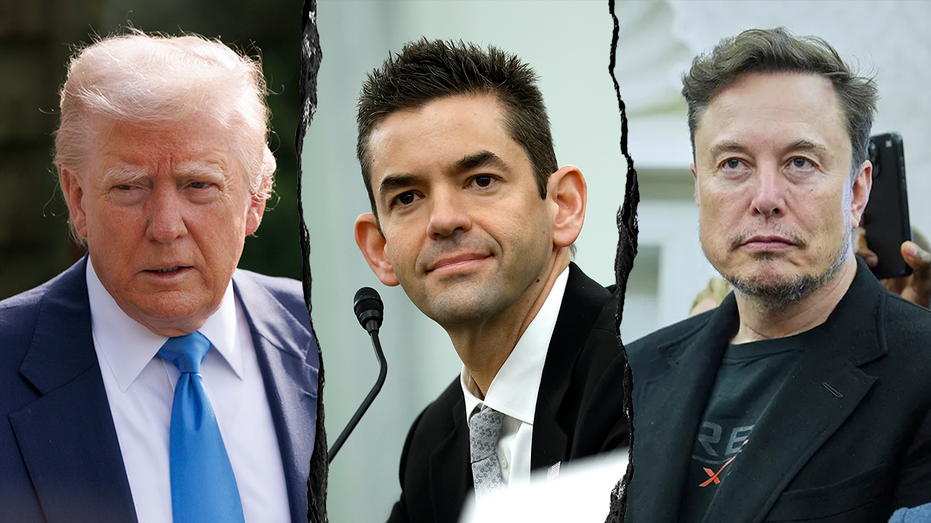Musk Ally's NASA Nominee Snub Sparks Criticism of 'Big, Beautiful Bill' Amid Trump Feud
Elon Musk ramps up criticism of Trump's "big, beautiful bill" after White House withdraws Jared Isaacman's NASA nomination.

A sudden shakeup in the administration unfolded this weekend as President Donald Trump withdrew his nomination of Jared Isaacman for NASA administrator, just one day after a high-profile White House farewell for Elon Musk, the departing head of the Department of Government Efficiency (DOGE). The move comes amid escalating tensions and public disagreements between Trump and Musk, capping off what had been a previously close working relationship focused on government cost-cutting and space policy innovation.
On Saturday, President Trump announced via social media that Isaacman, a commercial astronaut and CEO of Shift4 Payments, would no longer be considered for the NASA post. Explaining the decision, Trump cited a "thorough review of prior associations" and stated that a new nominee aligned more closely with his vision to "put America First in Space" would be named soon. The announcement took many by surprise, arriving just hours after the White House published tributes to Musk’s achievements and detailed the fiscal victories claimed during his DOGE tenure.
Jared Isaacman is well-known in the commercial space industry for his role as an investor in SpaceX and for commanding the Inspiration4 mission, the world’s first all-civilian orbital flight, conducted in partnership with Musk’s company. In a recent interview on the "All-In Podcast," Isaacman revealed he had been informed by the White House of the administration’s change in direction on May 30, the very day Musk officially stepped down from his government role. Isaacman suggested the timing was not coincidental, hinting that his close ties with Musk may have played a role in derailing his nomination.
Tensions, already simmering after Musk’s departure from DOGE, appeared to boil over following Isaacman’s withdrawal. Musk began to openly criticize the administration’s newly unveiled tax and spending package—legislation he claimed would worsen federal deficits and slash incentives critical to electric vehicle manufacturers like Tesla. In a series of high-profile posts, Musk labeled the bill a "disgusting abomination" and encouraged Americans to pressure lawmakers to defeat it.
White House officials confirmed President Trump was aware of Musk’s objections but made clear they did not affect his legislative agenda. In pointed remarks during a meeting at the Oval Office, Trump accused Musk of hypocrisy, suggesting Musk only opposed the bill after learning it would reduce lucrative electric vehicle tax credits. Trump further questioned Isaacman’s suitability for the NASA post due to his alleged Democratic affiliations, arguing, “We get certain privileges... One of the privileges is we don’t have to appoint a Democrat. NASA is very important.”
For his part, Isaacman maintained he did not believe his past political donations to Democrats were a factor, describing himself as "right-leaning" despite contributions to figures like Senate Minority Leader Chuck Schumer. Nevertheless, he acknowledged being a “visible target” amid broader administrative upheaval and said the White House indicated it was simply pursuing a different direction for NASA’s leadership.
The public rift continued to widen throughout the week. Musk asserted that, without his support, Trump would not have won the 2024 election and doubled down on claims he was never consulted on the controversial spending measure. Trump, meanwhile, dismissed the prospect of reconciliation, stating he would not be speaking with Musk "for a while" and wished his former advisor well, adding, “He’s got a problem. The poor guy’s got a problem.”
Despite the high-profile splits and uncertainty regarding future appointments, White House officials emphasized that DOGE’s signature initiatives targeting fraud, waste, and abuse within government will carry on under presidential and cabinet oversight. However, the agency itself is on track to formally shut down by July 4, 2026, marking the end of an era that saw both remarkable achievements and increasingly public disputes at the highest levels of government.




